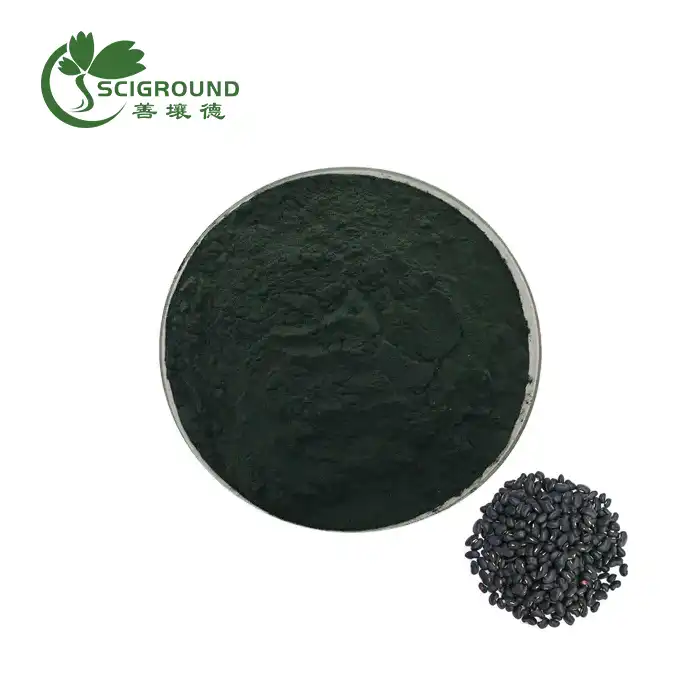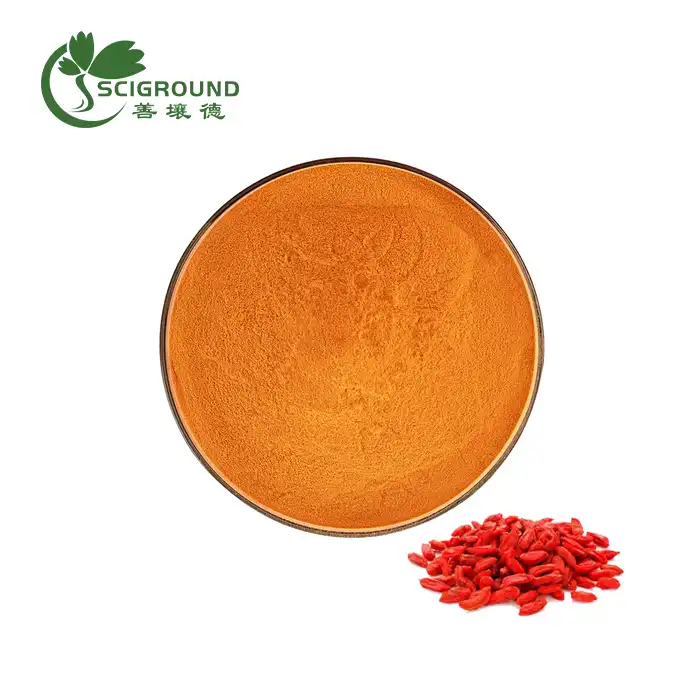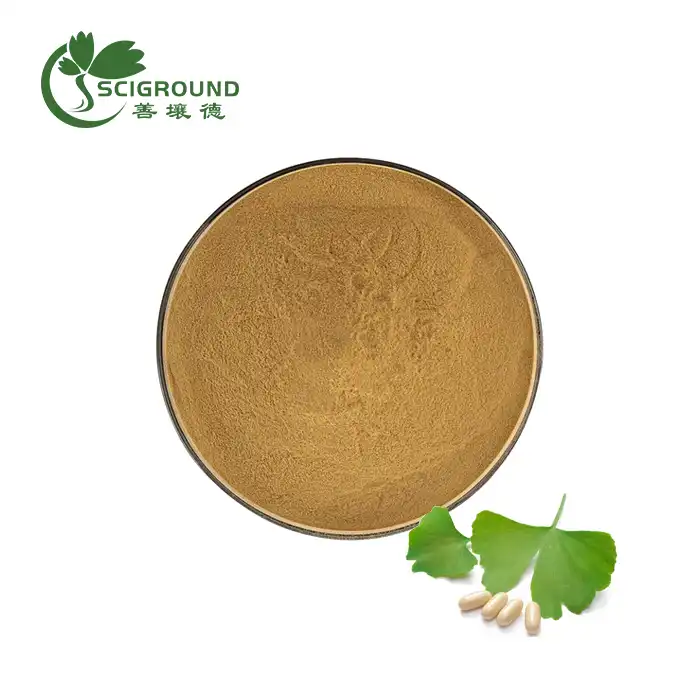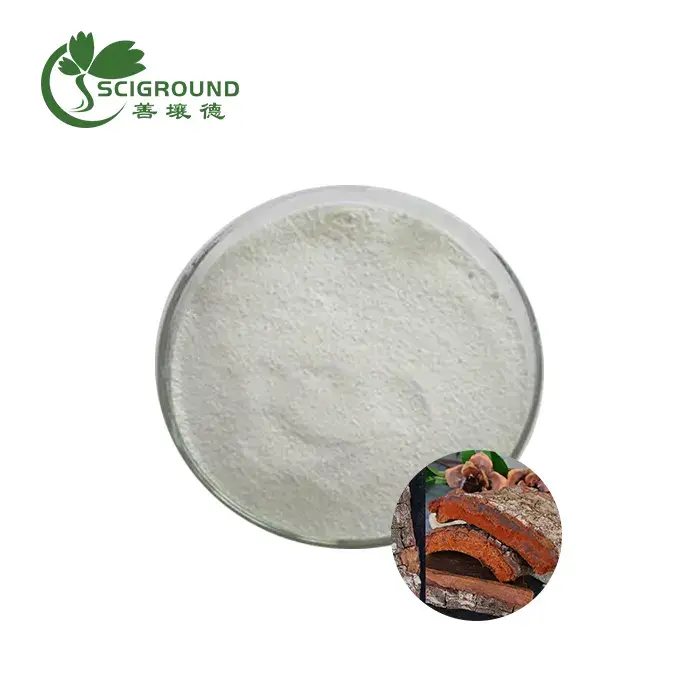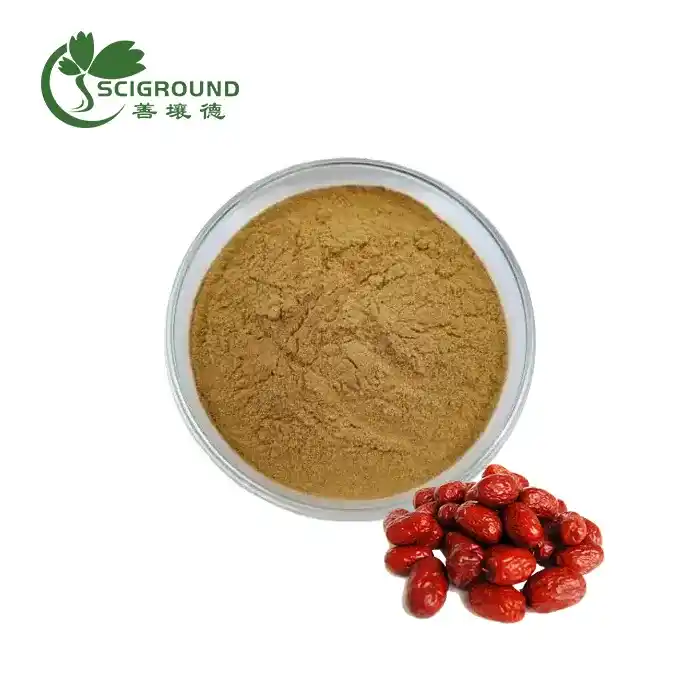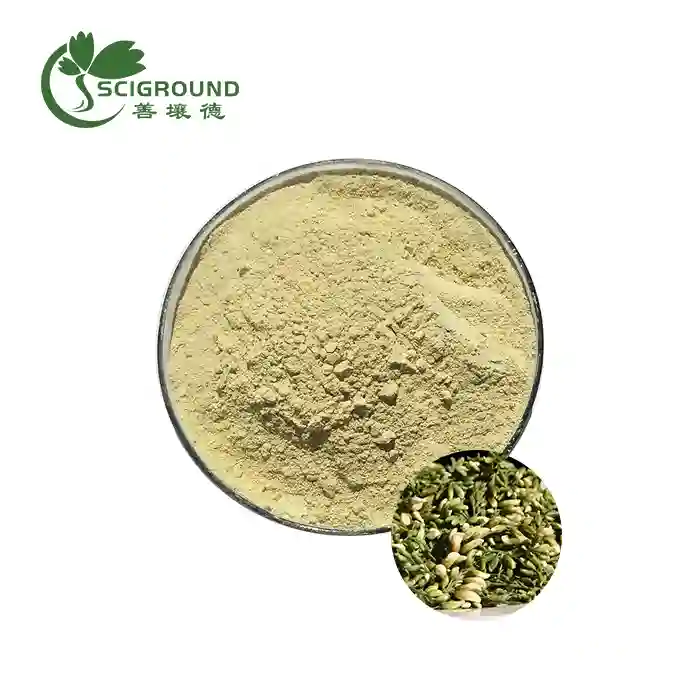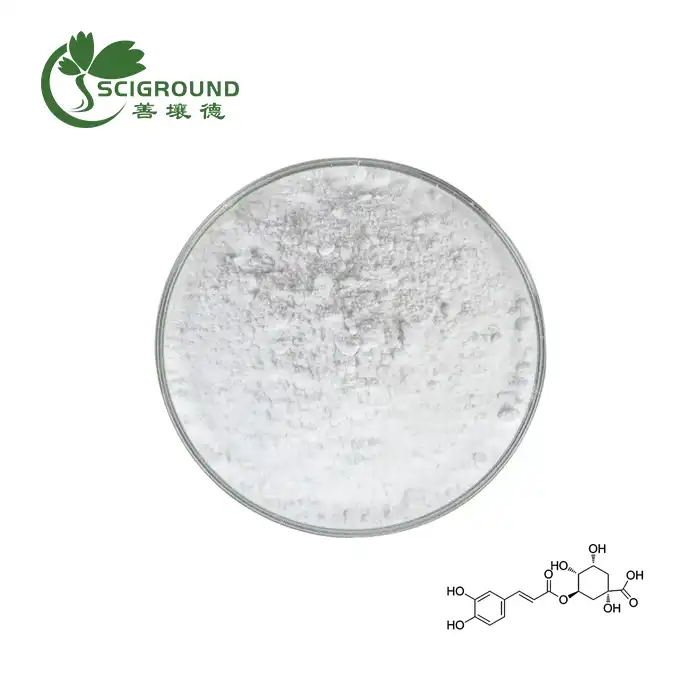What are the safety and side effects of Melaleuca Extract?
Melaleuca Extract, commonly known as tea tree oil, has gained popularity for its numerous potential health benefits. However, like any natural remedy, it's crucial to understand its safety profile and potential side effects before incorporating it into your wellness routine. In this comprehensive guide, we'll explore the benefits, composition, usage, and safety considerations of Melaleuca Extract.
What are the benefits of Melaleuca Extract?
Melaleuca Extract offers a wide array of potential health benefits, making it a versatile natural remedy. Let's delve into some of its most notable advantages:
Antimicrobial Powerhouse
One of the most celebrated properties of Melaleuca Extract is its potent antimicrobial activity. The oil has demonstrated efficacy against a broad spectrum of microorganisms, including bacteria, fungi, and certain viruses. This antimicrobial prowess is largely attributed to its ability to compromise the cell walls of these pathogens, effectively neutralizing their threat.
Anti-inflammatory Marvel
Melaleuca Extract boasts impressive anti-inflammatory properties, primarily due to its high concentration of terpinen-4-ol. This compound has been observed to suppress inflammatory responses in various contexts, from oral infections to skin inflammation. In fact, topical application of tea tree oil has shown superior effectiveness in reducing histamine-induced skin swelling compared to paraffin oil.
Antifungal Ally
The antifungal properties of Melaleuca Extract have been extensively studied, particularly in relation to Candida albicans, a common yeast that can affect various parts of the body. Interestingly, research suggests that terpinen-4-ol may enhance the efficacy of fluconazole, a standard antifungal medication, even against resistant strains of Candida albicans.
Potential Antiviral Effects
While research in this area is still evolving, some studies have indicated that Melaleuca Extract may possess antiviral properties. This potential could open up new avenues for its application in managing certain viral infections, though more comprehensive research is needed to fully understand and validate these effects.
Wha is Melaleuca Extract?
Melaleuca Extract is derived from Melaleuca alternifolia, a small tree native to Australia with a rich history of medicinal use. This potent essential oil is renowned for its broad-spectrum pharmacological properties, including antibacterial, antiviral, antifungal, and antiparasitic activities.
Composition and Active Compounds
The efficacy of Melaleuca Extract can be attributed to its unique chemical composition. The primary active compound in the oil is 1-terpinen-4-ol, also known as terpineol. This compound typically constitutes a significant percentage of the oil's composition, ranging from 27% to 44% in various studies.
Terpineol not only exhibits antiparasitic properties but also demonstrates broad antibacterial activity. This dual action makes it particularly valuable in preventing secondary infections that may arise from parasite-induced injuries.
Another noteworthy compound found in Melaleuca Extract is terpinene. This component has shown anthelmintic activity against arthropod ectoparasites, further contributing to the oil's diverse range of beneficial properties.
Historical and Modern Applications
Melaleuca Extract has been utilized for its healing properties in Australia for nearly a century, with a particular focus on treating skin conditions. In recent years, its application has expanded to address a variety of health concerns, leveraging its multifaceted therapeutic potential.
Effectiveness in Aquaculture
Interestingly, Melaleuca Extract has shown promising results in aquaculture applications. Studies have demonstrated its effectiveness in treating parasitic infections in fish species such as pacu and silver catfish. When applied in controlled concentrations over specific durations, the oil exhibited high efficacy rates, ranging from 94.8% to 99% in treating parasitic infestations.
How to use Melaleuca Extract?
Melaleuca Extract's versatility allows for various applications in daily life. Here are some practical ways to incorporate this potent natural remedy into your routine:
Wound Care
To harness the antimicrobial and anti-inflammatory properties of Melaleuca Extract for wound healing, apply a few drops to a fresh wound dressing. This can help combat bacteria and reduce inflammation, potentially accelerating the healing process.
Natural Oral Hygiene
Create a homemade mouthwash by adding two drops of Melaleuca Extract to a cup of water. This solution can be used as a natural antimicrobial rinse. However, it's crucial to remember that tea tree oil is toxic if ingested, so ensure you do not swallow the mixture.
Scalp Health
To address dandruff naturally, incorporate a few drops of Melaleuca Extract into your regular shampoo. This can help combat the fungal overgrowth often associated with dandruff, promoting a healthier scalp.
Acne Management
For those struggling with acne, a diluted Melaleuca Extract solution can be an effective topical treatment. Mix four drops of the oil with half a cup of water, then apply to the face using a cotton pad once daily. This can help manage acne-causing bacteria and reduce inflammation.
Eco-friendly Cleaning
Leverage the antimicrobial properties of Melaleuca Extract to create a natural household cleaner. Combine 20 drops of the oil with a cup of water and half a cup of white vinegar in a spray bottle. This mixture serves as an effective all-purpose antimicrobial cleaner for various surfaces in your home.
Safety Precautions
While Melaleuca Extract offers numerous benefits, it's essential to use it safely:
- Always dilute the oil before topical application to avoid skin irritation.
- Perform a patch test before widespread use to check for any allergic reactions.
- Never ingest Melaleuca Extract as it can be toxic when swallowed.
- Keep the oil out of reach of children and pets.
- If you're pregnant, nursing, or have any pre-existing health conditions, consult with a healthcare professional before using Melaleuca Extract.
Understanding the proper usage and safety precautions of Melaleuca Extract is crucial to maximize its benefits while minimizing potential risks. Always prioritize safety and consult with a healthcare provider if you have any concerns or questions about using this natural remedy.
Potential Side Effects and Safety Considerations
While Melaleuca Extract offers numerous benefits, it's crucial to be aware of potential side effects and safety considerations:
Topical Application Risks
When applied to the skin, some individuals may experience:
- Skin irritation
- Allergic contact dermatitis
- Itching or stinging sensation
- Burning or scaling of the skin
- Redness or dryness
These reactions are more common when using undiluted tea tree oil. Always dilute the oil and perform a patch test before widespread use.
Ingestion Hazards
Melaleuca Extract should never be ingested. Swallowing tea tree oil can lead to severe side effects, including:
- Confusion
- Lack of muscle control (ataxia)
- Decreasing levels of consciousness
- Severe rashes
- Blood cell abnormalities
- Gastrointestinal distress (stomach ache, diarrhea, vomiting, nausea)
- Hallucinations
- In extreme cases, coma
Specific Populations
Certain groups should exercise extra caution when using Melaleuca Extract:
- People with eczema should avoid using tea tree oil, as it may exacerbate their condition.
- There's limited evidence suggesting that repeated exposure to lavender oil and tea tree oil might lead to gynecomastia (swelling of breast tissue) in young boys. While more research is needed, parents should be aware of this potential risk.
Quality and Purity Concerns
The United States Food and Drug Administration (FDA) does not monitor tea tree oil for safety or purity. Therefore, it's crucial to purchase Melaleuca Extract from reputable sources to ensure you're getting a high-quality product free from contaminants or adulterants.
Antibiotic Resistance Concerns
While tea tree oil's antimicrobial properties are beneficial, consistent use of low-level doses may contribute to antibiotic-resistant bacteria. This is a significant concern in the medical community and underscores the importance of using Melaleuca Extract judiciously and as directed.
Conclusion
Melaleuca Extract, with its myriad of potential health benefits, can be a valuable addition to your natural health toolkit. From its potent antimicrobial properties to its anti-inflammatory effects, this versatile oil offers numerous applications for everyday wellness. However, it's crucial to approach its use with knowledge and caution.
Understanding the proper methods of application, potential side effects, and necessary safety precautions is key to harnessing the benefits of Melaleuca Extract while minimizing risks. Always prioritize safety by diluting the oil properly, performing patch tests, and avoiding ingestion.
Remember, while natural remedies can be powerful allies in maintaining health, they should not replace professional medical advice or prescribed treatments. If you have any underlying health conditions or concerns, always consult with a healthcare provider before incorporating Melaleuca Extract into your wellness routine.
By using Melaleuca Extract responsibly and staying informed about its effects, you can potentially enhance your health and well-being naturally. As research continues to unfold, we may discover even more exciting applications for this remarkable natural extract in the future.
For more information about Melaleuca Extract and other plant-based extracts, please don't hesitate to reach out to us at info@scigroundbio.com. Our team at Shaanxi SCIGROUND is committed to providing high-quality plant extracts and expert guidance to support your health and wellness journey.
References
- Carson, C. F., Hammer, K. A., & Riley, T. V. (2006). Melaleuca alternifolia (Tea Tree) Oil: a Review of Antimicrobial and Other Medicinal Properties. Clinical Microbiology Reviews.
- Hammer, K. A., Carson, C. F., Riley, T. V., & Nielsen, J. B. (2006). A review of the toxicity of Melaleuca alternifolia (tea tree) oil. Food and Chemical Toxicology.
- Pazyar, N., Yaghoobi, R., Bagherani, N., & Kazerouni, A. (2013). A review of applications of tea tree oil in dermatology. International Journal of Dermatology.
- Henley, D. V., Lipson, N., Korach, K. S., & Bloch, C. A. (2007). Prepubertal gynecomastia linked to lavender and tea tree oils. New England Journal of Medicine.
- Baldissera, M. D., Souza, C. F., Baldisserotto, B., & Heinzmann, B. M. (2017). Efficacy of Melaleuca alternifolia essential oil against monogenean parasites of Rhamdia quelen. Aquaculture.
- Valladão, G. M. R., Gallani, S. U., & Pilarski, F. (2015). Phytotherapy as an alternative for treating fish disease. Journal of Veterinary Pharmacology and Therapeutics.
Related Industry Knowledge
- What are the active ingredients in Euphorbia?
- How it works with ambroxol hydrochloride
- Why can't you take berberine long term?
- Can I Add Wheat Protein Powder to Babies Food
- Is it OK to eat ginger powder everyday?
- Is turmeric curcumin hard on kidneys?
- How to Use Horseradish Powder
- How long does curcumin stay in your system
- When should i take creatine monohydrate?
- Broccoli Extract Powder: A Comprehensive Guide
